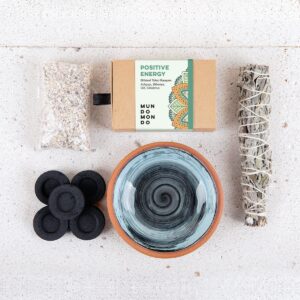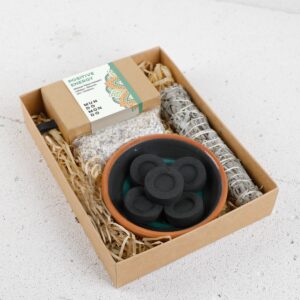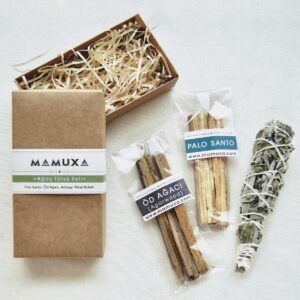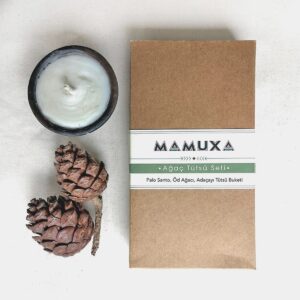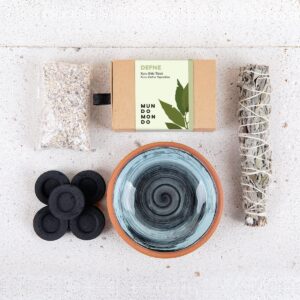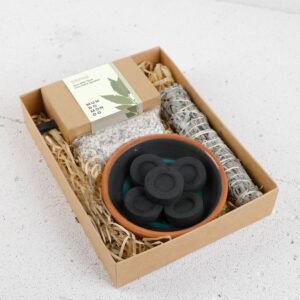One of nature’s greatest miracles is undoubtedly the healing power of plants. Herbal remedies, used for centuries in various cultures as solutions to health problems, continue to maintain their popularity today. But what lies within this magical world of plants? Let’s explore together!
The Healing Power of Plants
Plants are powerful allies in supporting our health with their rich components. Packed with valuable elements such as vitamins, minerals, and antioxidants, they provide the support our bodies need. Furthermore, plants serve as shields against illnesses with their active compounds, protecting and healing us.
The healing power of plants isn’t limited to combating diseases. They also play a vital role in enhancing our overall health and quality of life. They strengthen our immune system, increasing our resistance to illnesses. Supporting skin health, they help us achieve a vibrant and glowing appearance. By regulating our digestive system, they ease digestive issues and promote a smoother digestive process. Additionally, they help us manage stress, supporting our mental well-being.
The miraculous benefits offered by plants are the primary reason they have been used as solutions for health problems in different cultures for centuries. Today, modern medicine also harnesses the healing power of plants, incorporating herbal medicines into treatments for various ailments. Exploring and utilizing this source of healing that nature provides can open the doors to a healthier and happier life.
Herbal Treatment Methods
Herbal treatments aim to support our health by using nature’s healing resources in various ways. These methods involve preparing plants in different forms to be absorbed by the body. One of the most common herbal treatment methods is teas. Prepared by steeping dried or fresh plants, teas deliver their active ingredients effectively into the body.
Tinctures are concentrated liquids made by soaking plants in alcohol or vinegar. Typically used in drops, they allow faster absorption of active compounds. Herbal oils, extracted through pressing or distillation, support both physical and mental health when used in massages or aromatherapy.
Creams and ointments, containing herbal extracts or oils, are topical products applied to the skin. They aid in treating skin problems or in skincare, promoting healing and enhancing the skin’s beauty. Other methods used in herbal treatments include capsules, tablets, syrups, and herbal baths.
It’s essential to consult an expert to determine which herbal treatment method is suitable for you, as every plant has different effects and usage methods. Experts consider your health condition and needs to recommend the most appropriate treatment. Remember, correct and informed use increases the effectiveness and safety of herbal treatments.
When used correctly, herbal treatments can be a powerful tool in supporting our health. However, before starting any herbal treatment, it’s vital to consult an expert for proper guidance. This ensures that you can benefit from the healing power of plants in the most effective and safe way.
Which Plant is Good for Which Ailment?
The healing plants offered by nature provide natural and effective solutions for various ailments. Each plant has unique properties and benefits. Here are some common health issues and the plants that can help:
Sleep problems: Chamomile is known for its sleep-regulating and relaxing properties. A cup of chamomile tea before bedtime can help you fall asleep more easily and experience uninterrupted sleep.
Digestive issues: Peppermint is known for its soothing and gas-relieving effects on the digestive system. Peppermint tea or oil can be used for indigestion, bloating, and nausea.
Stress and anxiety: Lavender helps reduce stress with its calming and relaxing properties. Drinking lavender tea, massaging with lavender oil, or burning lavender-scented candles can alleviate stress.
Weak Immune System: Echinacea is known for its immune-boosting properties. It enhances the body’s resistance to infections such as colds and flu. Echinacea tea or supplements can be used.
Skin Issues: Aloe vera is renowned for its soothing and healing effects on the skin. Aloe vera gel can be applied to burns, sunburns, eczema, and acne to provide relief.
Respiratory Conditions: Eucalyptus is known for its decongestant and expectorant effects. Eucalyptus oil can be used for steam inhalation or massage to relieve coughs, bronchitis, and sinusitis.
Menstrual Cramps: Yarrow is known for its pain-relieving and soothing effects on menstrual cramps. Drinking yarrow tea during menstruation can help reduce discomfort.
Headaches: Peppermint and lavender oils can help alleviate headaches. They can be applied to the temples and neck through gentle massage.
Rheumatic Pain: Ginger is known for its anti-inflammatory and pain-relieving properties. Drinking ginger tea or massaging with ginger oil can be beneficial for rheumatic pain.
Depression and Anxiety: St. John’s Wort may help alleviate mild to moderate depression and anxiety symptoms. However, it’s essential to consult a doctor before use, as it can interact with certain medications.
Insomnia: Valerian root is known for its sleep-regulating and calming effects. It can help reduce the time it takes to fall asleep and improve sleep quality. Valerian root tea or supplements can be used.
High Blood Pressure: Garlic is known for its blood pressure-lowering effects. Regular consumption of garlic can help manage high blood pressure.
Memory and Concentration Issues: Ginkgo biloba is known for its brain-supporting and memory-enhancing properties. It can help improve concentration and cognitive performance.
Stomach Ulcers: Licorice root is known for its acid-reducing and protective effects on the stomach lining. Drinking licorice root tea can be helpful for stomach ulcers and gastritis. However, prolonged use of licorice root can raise blood pressure, so it should be used with caution.
Remember, it is essential to consult a specialist before starting any herbal treatment.
Points to Consider in Herbal Treatment
While herbal treatments are derived from natural sources and generally considered safe, it’s crucial to use them with care and awareness. Despite being natural, some herbs may have side effects or interact with existing medications. Therefore, always consult a doctor or specialist before starting any herbal treatment.
Your doctor or specialist will evaluate your current health condition and medications to recommend the most suitable herbal treatment method. They will also guide you on the correct dosage and frequency of use. Remember, overdose or misuse of herbal treatments can lead to serious health issues.
If you are pregnant, breastfeeding, or have a chronic illness, it is especially important to consult your doctor before starting any herbal treatment. Certain herbs can be risky or worsen existing conditions in these special circumstances. Additionally, if you are prone to allergic reactions, it is recommended to test a small amount of any new herbal product before full use.
Herbal treatments do not replace modern medicine. If you have a serious health problem or are unsatisfied with your current treatment, you should first consult your doctor and follow their recommendations. Herbal treatments can be used as complementary therapy with your doctor’s approval.
Finally, it is essential to source herbal products from reliable suppliers. Products without quality control or with unclear ingredients may pose health risks. Therefore, prefer purchasing herbal products from pharmacies, herbalists, or trusted online stores.
The Power of Plants for a Healthy Life
The healing plants offered by nature provide the key to a healthy life. When used correctly and consciously, these miraculous plants can be powerful allies in supporting our health. With their rich vitamins, minerals, antioxidants, and other beneficial components, plants provide the support our bodies need, boosting resistance against diseases.
Herbal treatments not only help prevent illnesses but also improve our overall health and quality of life. They strengthen our immune system, making us more resilient to diseases, increase our energy levels for a more active life, regulate our digestive system to relieve issues, and enhance skin health for a younger and more vibrant appearance.
The contributions of plants to our health are not limited to physical well-being. They also support mental health. By helping manage stress, anxiety, and depression, they enable us to lead a happier and more peaceful life. They improve sleep quality, allowing us to wake up feeling more refreshed and energetic.
However, to fully benefit from the advantages of plants, adopting a healthy lifestyle is crucial. Regular exercise, balanced and healthy eating, adequate sleep, avoiding stress, and staying away from harmful habits will amplify the effects of herbal treatments. In this way, the power of plants can open the doors to a healthier, more energetic, and happier life.
Remember, a healthy life is not limited to physical health alone. Mental, emotional, and social well-being are also integral parts of the whole. The natural healing resources provided by plants support this holistic approach to health, helping us achieve a more balanced and fulfilling life.
A Natural Touch to Beauty with Herbal Treatments
The miraculous plants offered by nature provide unique solutions not only for our internal health but also for our external beauty. Used for centuries in beauty rituals across different cultures, plants remain indispensable in skincare today. These natural ingredients, which support, nourish, and enhance skin health, are among the most effective ways to add a natural touch to beauty.
Aloe vera, frequently used in skincare products, is renowned for its soothing, moisturizing, and rejuvenating properties. It provides an effective solution for issues like sunburn, skin irritations, and acne. Creams and lotions containing aloe vera gel or extract deeply moisturize the skin, reduce irritation, and speed up the skin’s renewal process.
Rosewater helps maintain the skin’s pH balance, tightens pores, and adds a natural glow to the skin. With its antiseptic properties, it prevents the formation of acne and pimples. Toners and facial sprays containing rosewater cleanse, refresh, and revitalize the skin.
Tea tree oil, known for its antibacterial and antifungal properties, combats skin infections. It is effective in treating acne, pimples, and fungal issues. Additionally, it regulates the skin’s oil balance, preventing excessive oiliness and clogged pores. Cleansers, toners, and creams with tea tree oil help keep the skin clean and healthy.
Lavender oil is known for its soothing and calming effects on the skin. It reduces redness, irritation, and itching. It also alleviates skin problems caused by insomnia and stress. Facial massages with lavender oil or moisturizers containing lavender oil relax and soothe the skin.
Chamomile is known for its soothing and softening properties for the skin. Ideal for sensitive skin, chamomile reduces redness and irritation. A steam bath with chamomile tea or chamomile-infused creams can relax and soften the skin.
Jojoba oil, with a structure similar to the skin’s natural sebum, moisturizes the skin while preventing excessive oiliness. It nourishes, softens, and reduces the appearance of wrinkles. Serums and moisturizers containing jojoba oil help maintain the skin’s moisture balance and provide a more youthful look.
Coconut oil deeply moisturizes and nourishes the skin. With its antioxidant properties, it protects the skin against damage from free radicals. Ideal for dry and sensitive skin, coconut oil relieves dryness and helps the skin appear smoother.
Avocado oil boosts collagen production in the skin, maintaining elasticity and preventing wrinkles. It also nourishes, moisturizes, and softens the skin. Masks and creams containing avocado oil provide intense hydration, promoting a youthful appearance.
Rosehip oil helps reduce spots and uneven skin tone. It evens out skin tone, adding brightness and vitality. Serums and creams with rosehip oil diminish the appearance of blemishes and give the skin a radiant look.
Argan oil, rich in vitamin E and antioxidants, nourishes and moisturizes the skin while helping to reduce signs of aging. Serums and creams containing argan oil contribute to a more youthful and vibrant complexion.
Grapeseed oil is a powerful source of antioxidants. It protects the skin from free radical damage, prevents wrinkles, and enhances skin elasticity. Products containing grapeseed oil help the skin appear firmer and smoother.
Oatmeal is known for its soothing and moisturizing properties. It reduces irritation, alleviates redness, and hydrates the skin. Masks and cleansers containing oatmeal are ideal for sensitive skin.
Green tea, rich in antioxidants, protects the skin against free radical damage, delays signs of aging, and gives the skin a natural glow. Toners and creams with green tea help the skin appear younger and healthier.
Cucumber is known for its cooling and soothing effects. It reduces puffiness and dark circles under the eyes, hydrates the skin, and revitalizes it. Eye masks made with cucumber slices or toners containing cucumber extract refresh the skin.
Honey, with its antibacterial and moisturizing properties, fights bacteria on the skin and prevents acne and pimples. It also moisturizes, softens, and nourishes the skin. Honey masks and cleansers help the skin appear cleaner and healthier.
Turmeric is known for its anti-inflammatory properties. It reduces inflammation, alleviates redness, and evens out skin tone. Turmeric masks and creams reduce the appearance of spots and give the skin a natural glow.
Citrus oils (orange, lemon, grapefruit) are known for their brightening and rejuvenating effects on the skin. They even out skin tone, reduce the appearance of spots, and give the skin a natural radiance. Serums and creams containing citrus oils help the skin appear brighter and more vibrant.
Papaya contains enzymes that help remove dead skin cells. It cleanses the skin, tightens pores, and gives the skin a natural glow. Papaya-infused peels and masks help the skin appear smoother and brighter.
Shea butter deeply moisturizes and nourishes the skin. Ideal for dry and cracked skin, shea butter maintains the skin’s moisture balance and provides a softer appearance. Creams and lotions containing shea butter nourish and protect the skin.
Natural skincare products prepared with herbal ingredients keep your skin free from harmful chemicals, helping you achieve healthier and more beautiful skin. However, it is essential to consider your skin’s needs and sensitivities before using any herbal product.
The Miraculous Effects of Herbal Oils
The miraculous effects of the healing plants offered by nature are not limited to oils alone. Herbal remedies, teas, tinctures, and many other forms are also used to support our health and beauty. These methods, which have been used in traditional medicine for centuries, continue to provide natural and effective solutions to the stress, fatigue, and other health issues brought about by modern life.
Herbal teas are perhaps the most well-known and widely used herbal remedies. Teas prepared by steeping different plants such as chamomile, linden, sage, and green tea support our bodies and protect against illnesses thanks to their vitamins, minerals, and antioxidants. Chamomile tea helps with insomnia, while linden tea is effective against colds. Sage soothes sore throats and strengthens the immune system, and green tea boosts metabolism and aids in weight loss.
Herbal remedies consist of special formulations made from mixtures of different plants. These remedies are prepared to address specific health issues and are typically consumed as tea, tincture, or capsule. For example, a tea remedy combining fennel, ginger, and chamomile can be prepared for digestive problems. For stress and anxiety, a tincture made from a blend of lemon balm, valerian, and lavender can be used.
Herbal tinctures are concentrated liquids obtained by steeping plants in alcohol or vinegar. They are typically used in drops, allowing active ingredients to be absorbed more quickly. For example, echinacea tincture strengthens the immune system, while St. John’s wort tincture can alleviate mild symptoms of depression.
When used correctly and consciously, herbal remedies and teas can be powerful tools to support our health. However, it is essential to consult a specialist before using any herbal product. Some herbs may have side effects or interact with existing medications. Specialists can evaluate your health condition and needs to recommend the most suitable herbal treatment method for you.
Healing from Nature at Mamuxa!


